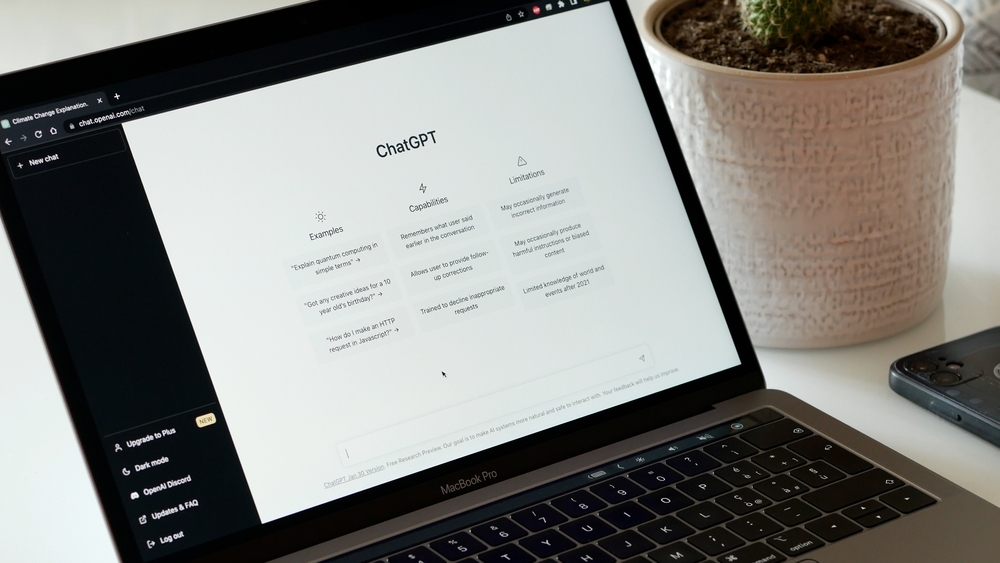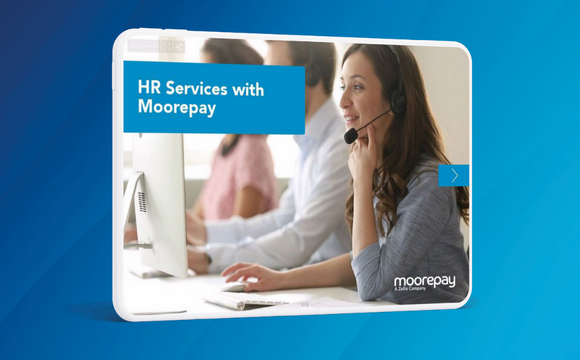Using Chatgpt in HR & payroll

At least 40% of businesses have harnessed artificial intelligence within their organisation. Usage is rapidly increasing. So, when using Chatgpt in HR & payroll, are we at a momentous crossroads or jumping off a cliff?
We’re using ChatGPT in HR, payroll and every other facet of life currently, but it wasn’t always the case. Thirty years ago (assuming you were rich enough), you consulted your 20 volumes of the Encyclopaedia Britannica. This offered 500,000 topics in 40 million words. We took AA roadmaps on holiday and consulted an A to Z to navigate larger towns. It’s fewer than 40 years since mobile phones – with dimensions, weight and technological limitations of a house brick – emerged.
Three decades later, we’ve morphed through the internet. Satellite navigation guides our cars. Our personal assistants, Siri and Alexa, answer our questions. Google provides instant responses to everything. A thousand other life enhancing applications are available on our smartphones. We may not understand artificial intelligence, but we’ve happily embraced it.
Now we’re at another exciting crossroads. The new kid on the block is ChatGPT. A fantastic, free, machine learning tool with plenty of Human Resources applications. It can write your adverts, job descriptions, produce reports, devise punchy slogans – even prepare dismissal letters.
It ‘scrapes’ 300 billion words to provide you with just what you want. And it’s presented in seductively attractive, grammatically competent language. By the way, it’ll also plan your holiday, suggest advantages and disadvantages of different cars, offer concerts and festivals to your musical taste or provide the menu for tonight’s dinner. What’s not to like?
Well, Open AI, the laboratory behind Chat GPT issues a note of caution. It may sometimes write plausible sounding but incorrect or nonsensical answers. They say, “AI systems are becoming part of everyday life. The key is to ensure that these machines are aligned with human intention and values.” “AI technology comes with tremendous benefits, along with serious risk of misuse.”
HR considerations
So, reverting to HR considerations, can you rely on what you’re offered? ChatGPT itself says “While we have safeguards in place, the system may occasionally generate incorrect or misleading information and produce offensive or biased content. It is not intended to give advice.”
Chatbots also suffer from what’s called ‘algorithmic bias’. The results they offer effectively rely on a comparison of existing source material. They don’t think; they compare. Source material that was biased remains biased, regardless of how attractively it may be presented.
For example, when I asked ChatGPT to write me a job advert for the androgynous role of ‘stripper’, it politely advised me that my request was inappropriate, could be discriminatory or promote inappropriate behaviour. However with marginal refinement, it readily produced one for ‘exotic dancer’.
And it equally happily offered me a gender biased advert and job description for a handyman.
It’s a real challenge to ensure requests utilising colloquial terminology return secure, reliable responses.
Similarly, a credible looking letter set out my ‘immediate’ dismissal and failed to mention my right of appeal. Chatbots may propose actions for you but they don’t offer guidance, advice, or legal compliance.
Neither does AI have any regard to data protection considerations. Open AI is exactly that. Open. To everyone. Never input personal data or, indeed, sensitive or company confidential information. Who knows where it will end up.
And woe betide if someone else owns the intellectual property rights in something a chatbot offers. I asked it to design a slogan for a new fast-food outlet. It offered me ten snappy options, two of which were immediately recognisable as those of major brands. I’m probably not loving it! Big players fiercely protect their intellectual property, trademarks etc.
And you may be vicariously liable for actions your staff take. If you allow them to use products like ChatGPT within their role, you must have very clear policies to regulate usage.
Also, be careful when searching for chatbots. Fraudsters and scammers are already circling. You may be offered access or, indeed, improvements via sponsored links e.g. Google Ads. You could, inadvertently, download a malicious extension. At the more innocent end of the spectrum, you may pay for something that’s free. (In the same way some sites charge you to apply for a free UK Global Health Insurance Card). More sinister, however, is possibly importing malware which e.g. hijacks your authentication data.
So what key prompts do we suggest for using AI such as ChatGPT in Hr & payroll?
- Use it responsibly – never blindly accept what it churns out.
- Check and cross check – human intervention and thought is always essential.
- Ensure legality – especially equalities and data protection considerations.
- Never input personal or confidential data.
- Beware of copyright, intellectual property, trademark etc. infringements.
- Have very clear policies about staff use – reinforced with effective training.
- Ensure you are accessing products like ChatGPT directly.
Worried about something? Check in with out HR consultants.
Most importantly, and however credible that AI draft may look, it’s a ‘scraped’ comparison. It’s not original thinking. It does not include guidance or advice and is not formulated to meet your specific needs. Chatbots such as ChatGPT, Microsoft’s Bing and Google’s Bard basically consume and then reproduce whatever data is input.
The philosophy of ‘caveat emptor’ [let the buyer beware] has been a well-trodden legal concept for over 500 years. But it’s never more relevant than now. When using ChatGPT in HR & payroll, exercise care and caution!




